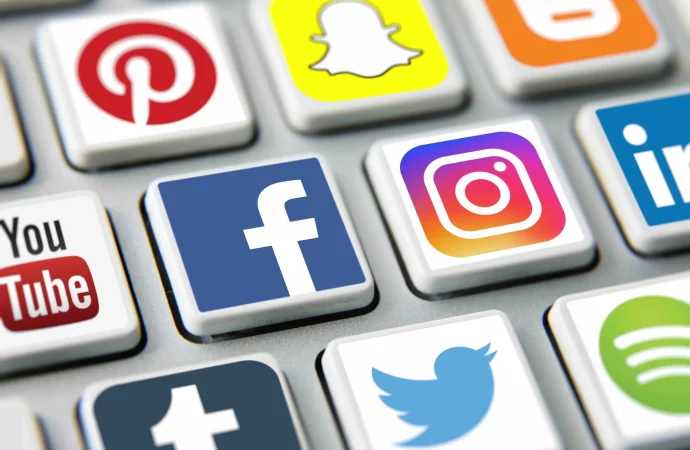Introduction Social media has transformed every aspect of modern life, and the entertainment industry is no exception. Over the last decade, platforms like Facebook, Instagram, TikTok, and YouTube have revolutionized how we consume and create content, breaking down barriers between celebrities, influencers, and fans. In this article, we’ll explore how social media has reshaped the
Introduction
Social media has transformed every aspect of modern life, and the entertainment industry is no exception. Over the last decade, platforms like Facebook, Instagram, TikTok, and YouTube have revolutionized how we consume and create content, breaking down barriers between celebrities, influencers, and fans. In this article, we’ll explore how social media has reshaped the entertainment industry, analyze its impact, and compare traditional media with social media-driven entertainment.
Breaking Down the Barriers Between Celebrities and Fans
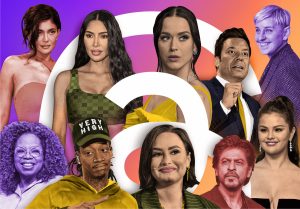
Image by: Yandex.com
In the past, fans could only engage with their favorite celebrities through traditional media like television interviews, magazine articles, or fan mail. Social media has completely changed this dynamic. Today, platforms like Instagram and Twitter allow fans to follow their favorite stars’ lives in real time, seeing behind-the-scenes moments and personal stories that were once inaccessible.
This direct connection has helped celebrities build stronger fan bases. It’s no longer just about watching a movie or a show; fans now feel involved in the daily lives of their idols, creating a sense of closeness and loyalty that traditional media couldn’t foster.
New Forms of Entertainment
Social media has given rise to new forms of entertainment that didn’t exist before. From short, funny TikTok videos to live-streaming gaming on Twitch, people are consuming content in more varied ways. These new forms of entertainment often don’t require expensive equipment or big teams to produce, making it easier for more people to become creators. This has led to a much wider range of content available for audiences to enjoy.
The Impact of Viral Trends
Social media is all about trends. Within hours, a single dance, song, or video can become viral and reach millions of viewers.. This viral nature has changed how entertainers promote their work. For example, musicians often hope their songs become popular on TikTok, knowing that a viral dance challenge can boost their music’s popularity. In this way, social media has made entertainment more dynamic and fast-paced.
Influencers and the Rise of User-Generated Content
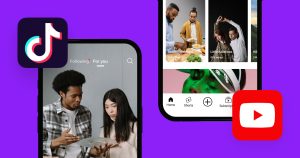
Image by: Yandex.com
One of the most significant changes social media brought to the entertainment industry is the rise of influencers and user-generated content. Platforms like TikTok and YouTube allow ordinary individuals to become content creators, building massive audiences and even challenging traditional celebrities in terms of reach and influence.
In fact, many influencers have become celebrities in their own right, signing endorsement deals, landing acting roles, or even collaborating with well-known brands. The ability to create and share content with a global audience without needing a production studio or large marketing budgets has democratized entertainment like never before.
Easier Content Creation
Before social media, creating content required lots of money and resources. Filmmakers, musicians, and artists needed studios, equipment, and large teams to create their work. Now, with platforms like YouTube and Instagram, anyone can make content with just a phone. This has allowed more people to share their ideas and talents with the world. Even simple videos can reach millions of viewers.
Faster Spread of Information
Social media allows entertainment news to spread quickly. When a new movie trailer or music video is released, it can go viral in minutes. Fans share posts with their friends, and it quickly spreads across the internet. This fast-paced sharing means entertainment companies don’t have to wait for TV or print media to promote their work. It’s easier to create buzz and excitement around new releases.
Fans Becoming Creators
Social media has also made it possible for fans to become creators. People who love a TV show or movie can now make their own content based on it. They might create fan art, write blogs, or make reaction videos. This has led to a rise in fan communities, where people share their love for certain entertainment in creative ways. These fan-made creations often help keep a show or movie popular for longer.
Real-Time Engagement and Audience Interaction
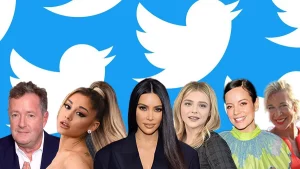
Image by: Yandex.com
Social media has also allowed for unprecedented levels of real-time engagement between content creators and their audience. Live streams on platforms like YouTube, Twitch, and Instagram Live allow creators to interact directly with their fans, answer questions, and receive instant feedback.
For the entertainment industry, this has changed how content is both produced and consumed. TV shows, movies, and even video games now integrate social media to engage with fans. For instance, live-tweeting during TV show broadcasts or releasing exclusive trailers on social platforms are strategies that help boost audience participation and anticipation.
Collaborations with Brands
Many social media creators work with brands to promote products. Companies often pay influencers to feature their products in videos or posts. This has become a new form of advertising that feels more personal than traditional commercials. For the creators, this means they can earn money while doing what they love. For brands, it’s a way to reach more people in a fun and engaging way.
More Opportunities for New Talent
Social media has opened doors for new talent. Many artists and performers used to have trouble getting noticed by big agencies or studios. Now, they can build their audience on social platforms without needing any help from major companies. Many artists have even gone from being social media stars to landing major deals in music, film, and TV. This shift has made the entertainment world more open to fresh, diverse talent.
Changes in Viewer Habits
Social media has also changed the way people watch entertainment. Instead of waiting for shows to air on TV, viewers can watch clips or full episodes on platforms like YouTube or Instagram. People now consume content on their phones, often watching short videos during breaks. This has changed how entertainment is made, with more focus on short, engaging content that fits into people’s busy lives.
Shaping Trends and Creating Viral Content

Image by: Yandex.com
Social media has become the central hub for trendsetting in the entertainment industry. Viral content, whether it’s a meme, a dance challenge, or a catchy song, can spread worldwide in just a matter of hours. This has changed how music artists, filmmakers, and even game developers think about promoting their work.
Platforms like TikTok, in particular, have played a massive role in boosting music sales. A song that goes viral on TikTok can quickly climb the charts as fans share and remix the content. This shift has led entertainment producers to focus on creating content that is shareable and engaging, with the goal of tapping into the viral nature of social platforms.
Instant Global Reach
Social media lets entertainers reach audiences all over the world instantly. Before, it was harder for musicians or actors to become famous outside their own country. Now, with platforms like Instagram and TikTok, people from any part of the world can follow, like, and share content. This global reach helps entertainers grow their fanbase quickly and gain international recognition without the need for expensive marketing campaigns.
Direct Connection with Fans
Social media gives entertainers a way to talk directly to their fans. They no longer need to rely on interviews or news outlets to share updates. Stars can post photos, videos, or messages whenever they want, letting fans feel more connected to their favorite celebrities. This direct contact makes fans feel like they are part of the entertainer’s world, building loyalty and excitement around their work.
New Revenue Streams for Creators
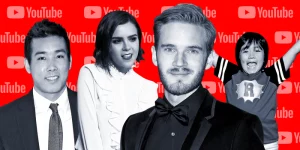
Image by: Yandex.com
With the rise of social media, creators now have access to new revenue streams that didn’t exist before. Platforms like YouTube, Instagram, and TikTok offer monetization options through ads, sponsorships, and even fan donations. Creators can also sell merchandise directly to their followers, further deepening their connection with their audience.
For the entertainment industry, this means that independent artists, filmmakers, and musicians can now sustain themselves without the backing of major studios or labels. This has opened the door for more diverse voices and ideas to enter the market, enriching the entertainment landscape.
The Downside: Pressure and Oversaturation
While social media has undoubtedly opened up opportunities for creators, it has also brought new challenges. The constant need to produce content to stay relevant can be exhausting. Many influencers and content creators feel pressured to keep up with trends, leading to burnout.
Additionally, the entertainment industry is becoming oversaturated with content. With millions of videos, posts, and images being uploaded daily, it can be difficult for new creators to stand out. This has made social media success feel like a lottery, where only a few manage to break through the noise.
Easier Access to Fame
In the past, becoming famous was a long and difficult journey. You needed agents, studios, and a lot of money. Social media has changed this completely. Now, anyone with a smartphone and creativity can share their content with the world. Platforms like TikTok and YouTube have made it possible for regular people to become famous overnight. This has opened doors for more diverse voices and ideas in entertainment.
Building Stronger Communities
Social media has also allowed entertainers to build stronger communities. Fans can now connect with their favorite creators and with each other more easily. Platforms like Instagram and Twitter let fans leave comments, ask questions, and even receive replies from the stars they admire. This creates a deeper connection between fans and creators, making them feel like a part of the entertainer’s journey.
Instant Feedback for Creators
Social media gives creators instant feedback on their content. When a video, song, or post is shared, creators can see how people are reacting right away through likes, shares, and comments. This helps entertainers understand what their audience enjoys and what they need to improve. Unlike traditional media, which could take months to gather feedback, social media allows creators to adjust their content quickly to meet their audience’s expectations.
The Future of Social Media in Entertainment
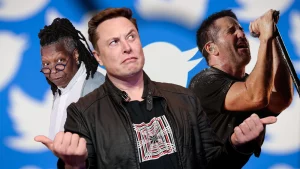
Image by: Yandex.com
The future of social media in the entertainment industry looks promising. As technology continues to evolve, platforms may become even more integrated with entertainment, providing immersive experiences like virtual reality concerts, interactive films, and live augmented reality events.
Moreover, the relationship between fans and content creators will likely continue to evolve, becoming more collaborative and personalized. As artificial intelligence and data analytics improve, creators will be able to tailor their content more effectively, ensuring that it resonates with specific audiences.
Analysis Table
| Key Aspect | Impact of Social Media |
|---|---|
| Access to Celebrities | Direct interaction with fans through platforms like Instagram and Twitter |
| Influencers’ Role | Rise of influencers creating user-generated content, challenging traditional media |
| Audience Engagement | Real-time interaction via live streams and comments |
| Viral Content Creation | Trends and challenges can spread globally in hours, boosting content visibility |
| Revenue Generation | New monetization methods through ads, donations, and sponsorships |
| Challenges | Pressure to constantly create content, risk of burnout, and oversaturation |
Comparative Table: Traditional Media vs. Social Media
| Criteria | Traditional Media | Social Media |
|---|---|---|
| Content Creation | Controlled by studios, high-cost production | Open to anyone with minimal investment |
| Distribution | Limited by networks, cinemas | Direct global access through platforms |
| Audience Interaction | Passive, delayed feedback | Real-time, two-way communication |
| Speed of Fame | Slow, years to build reputation | Instant viral fame possible |
| Revenue Models | Advertising, subscriptions, box office | Ads, sponsorships, merchandise, direct donations |
Conclusion
Social media has had a profound impact on the entertainment industry, shifting the power from traditional gatekeepers to individual creators and influencers. It has created new opportunities for engagement, allowed for more diverse content, and provided new revenue streams. However, it also presents challenges such as burnout and content oversaturation. As the industry continues to adapt, it is clear that social media will remain a driving force in shaping the future of entertainment.

